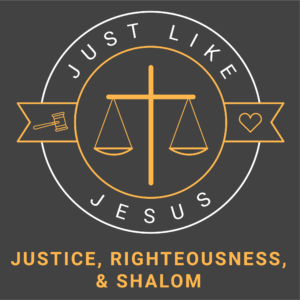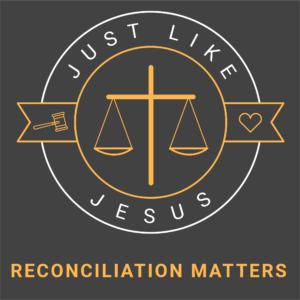Listen as Pastor Jeff explains why our church is talking about race in January.
Value and Dignity – January 16/17
“Created in the image of God” means that human value is not determined by us. It is defined by God. How can we faithfully value what God values?
Genesis 1: 26-27
Then God said, “Let us make man in our image, after our likeness. And let them have dominion over the fish of the sea and over the birds of the heavens and over the livestock and over all the earth and over every creeping thing that creeps on the earth.” So God created man in his own image, in the image of God he created him; male and female he created them.
Luke 10: 29-37
But he wanted to justify himself, so he asked Jesus, “And who is my neighbor?”
In reply Jesus said: “A man was going down from Jerusalem to Jericho, when he was attacked by robbers. They stripped him of his clothes, beat him and went away, leaving him half dead. A priest happened to be going down the same road, and when he saw the man, he passed by on the other side. So too, a Levite, when he came to the place and saw him, passed by on the other side. But a Samaritan, as he traveled, came where the man was; and when he saw him, he took pity on him. He went to him and bandaged his wounds, pouring on oil and wine. Then he put the man on his own donkey, brought him to an inn and took care of him. The next day he took out two denarii and gave them to the innkeeper. ‘Look after him,’ he said, ‘and when I return, I will reimburse you for any extra expense you may have.’
“Which of these three do you think was a neighbor to the man who fell into the hands of robbers?”
The expert in the law replied, “The one who had mercy on him.”
Jesus told him, “Go and do likewise.”
Questions for Discussion:
In 2021, any discussion of human dignity and value requires us to address issues of racial justice. Why is it hard to talk about race, racism, and racial justice?
We confess that we have devalued what God values. What does our confession mean when we say, “by what we have done and by what we have left undone?”
What are ways we can “love our neighbor” in ways that are truly sacrificial?
To accompany this week’s sermon, check out the readings for our 21 Days of Justice here or incorporate it into your daily devotional utilizing The Daily Pattern here.
Justice, Righteousness, & Shalom – January 23/24
Through the cross of Jesus, God does justice to us: He brings us into relational alignment with Himself and makes us whole again. As people who are justified by God, not ourselves, how does this set us free to do justice on behalf of others?
Micah 6:6-8
“With what shall I come before the Lord, and bow myself before God on high? Shall I come before him with burnt offerings, with calves a year old? Will the Lord be pleased with thousands of rams, with ten thousands of rivers of oil? Shall I give my firstborn for my transgression, the fruit of my body for the sin of my soul?” He has told you, O man, what is good; and what does the Lord require of you but to do justice, and to love kindness, and to walk humbly with your God?
Mark 12:28-34
And one of the scribes came up and heard them disputing with one another, and seeing that he answered them well, asked him, “Which commandment is the most important of all?” Jesus answered, “The most important is, ‘Hear, O Israel: The Lord our God, the Lord is one. And you shall love the Lord your God with all your heart and with all your soul and with all your mind and with all your strength.’ The second is this: ‘You shall love your neighbor as yourself.’ There is no other commandment greater than these.” And the scribe said to him, “You are right, Teacher. You have truly said that he is one, and there is no other besides him. And to love him with all the heart and with all the understanding and with all the strength, and to love one’s neighbor as oneself, is much more than all whole burnt offerings and sacrifices.” And when Jesus saw that he answered wisely, he said to him, “You are not far from the kingdom of God.” And after that no one dared to ask him any more questions.
Questions for Discussion:
What is your reaction to the statement “No Justice, No Peace”? How does a Biblical understanding of those words change your perspective?
What does the Down Arrow mean? How does this affect how you relate to others?
What is one way you can do justice this week?
To accompany this week’s sermon, check out the readings for our 21 Days of Justice here or incorporate it into your daily devotional utilizing The Daily Pattern here.
Reconciliation Matters – January 30/31
Biblically speaking reconciliation refers to “the exchange of hostility or enmity to a friendly relationship, to change a person for the purpose of being able to have fellowship together.” As Christians we have been “changed” and “reconciled” back to God through Christ. Now we are called to carry out reconciliation to our neighbors.
2 Corinthians 5: 17-18
Therefore, if anyone is in Christ, he is a new creation. The old has passed away; behold, the new has come. All this is from God, who through Christ reconciled us to himself and gave us the ministry of reconciliation;
Matthew 23:23-26
“Woe to you, scribes and Pharisees, hypocrites! For you tithe mint and dill and cumin, and have neglected the weightier matters of the law: justice and mercy and faithfulness. These you ought to have done, without neglecting the others. You blind guides, straining out a gnat and swallowing a camel!
“Woe to you, scribes and Pharisees, hypocrites! For you clean the outside of the cup and the plate, but inside they are full of greed and self-indulgence. You blind Pharisee! First clean the inside of the cup and the plate, that the outside also may be clean.
Questions for Discussion:
How does Christ reconciling you back to God, “while we were still sinners” (Rom. 5:8) impact how you approach reconciliation with others? How does a Biblical understanding of reconciliation change your perspective?
How might the American hallmarks of competition and rivalry be a hindrance to reconciliation with those who are seen as different from you?
What are some personal relationships in your life that need reconciliation?
To accompany this week’s sermon, check out the readings for our 21 Days of Justice here or incorporate it into your daily devotional utilizing The Daily Pattern here.




